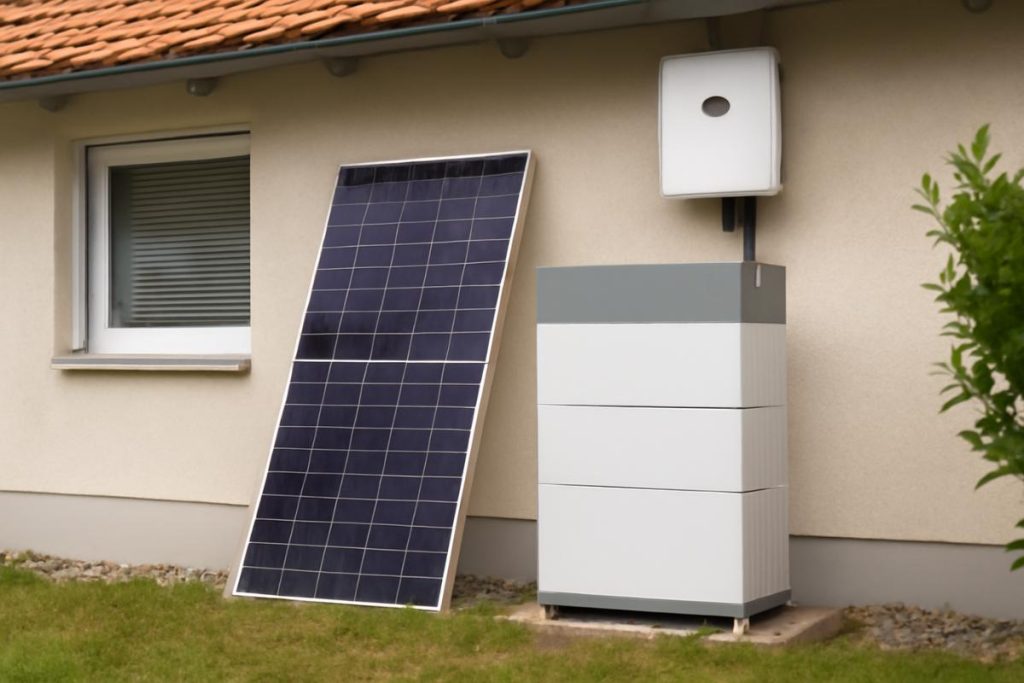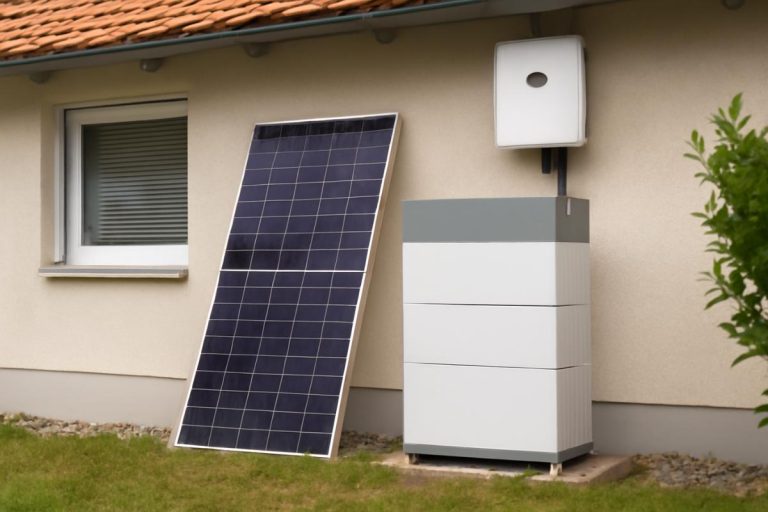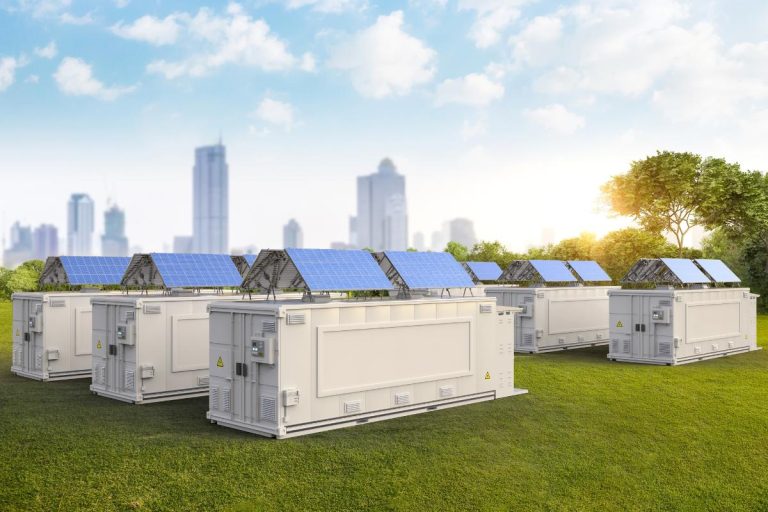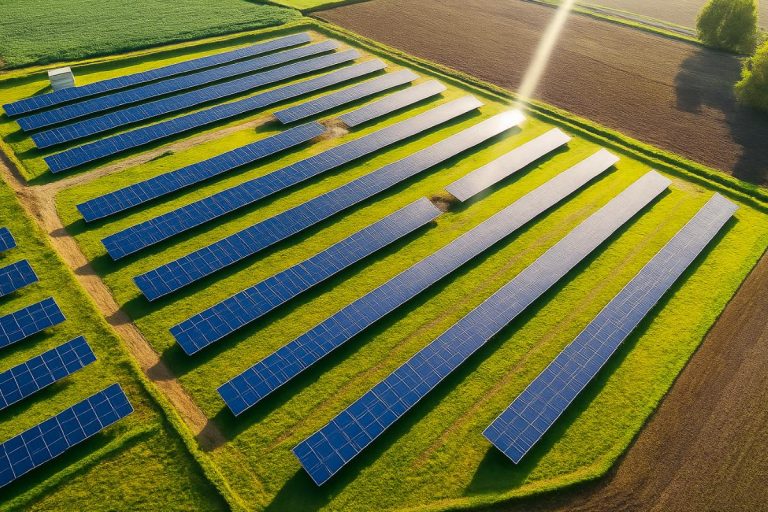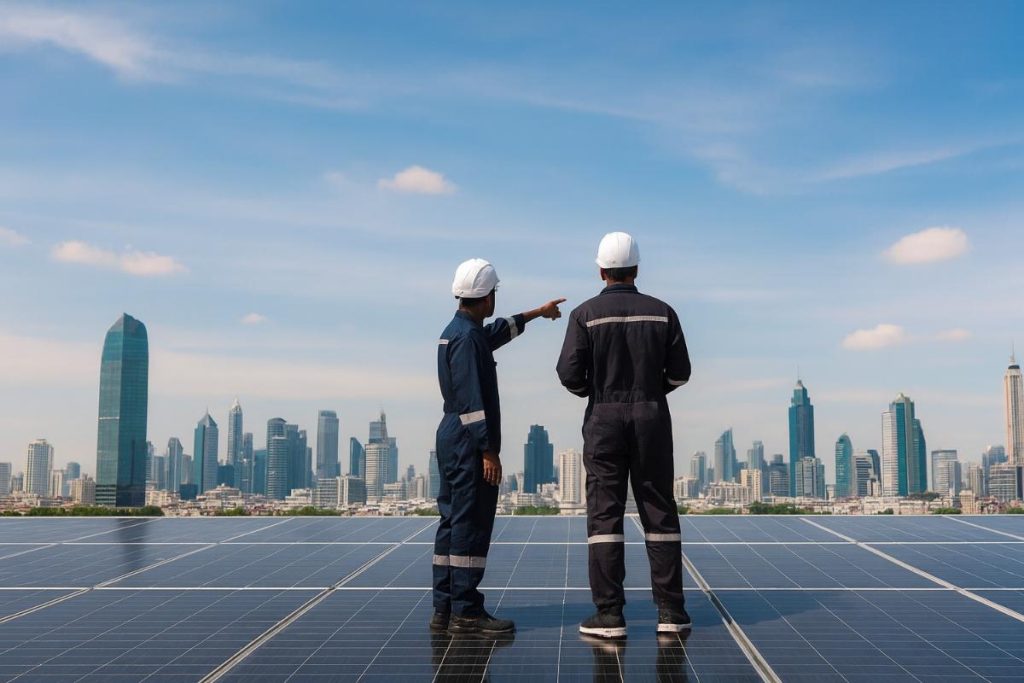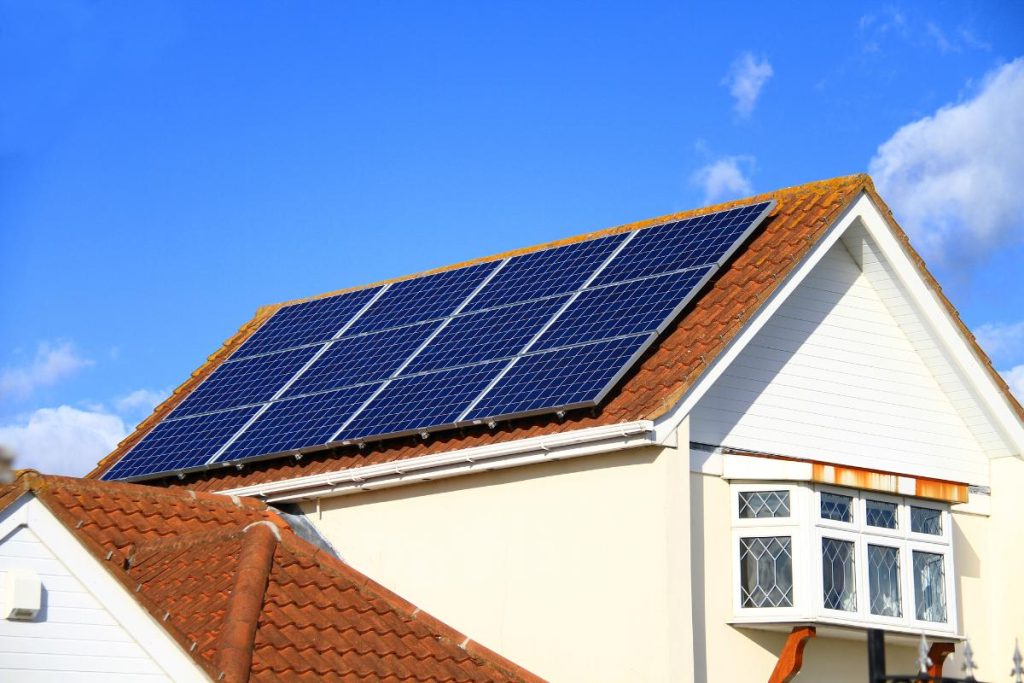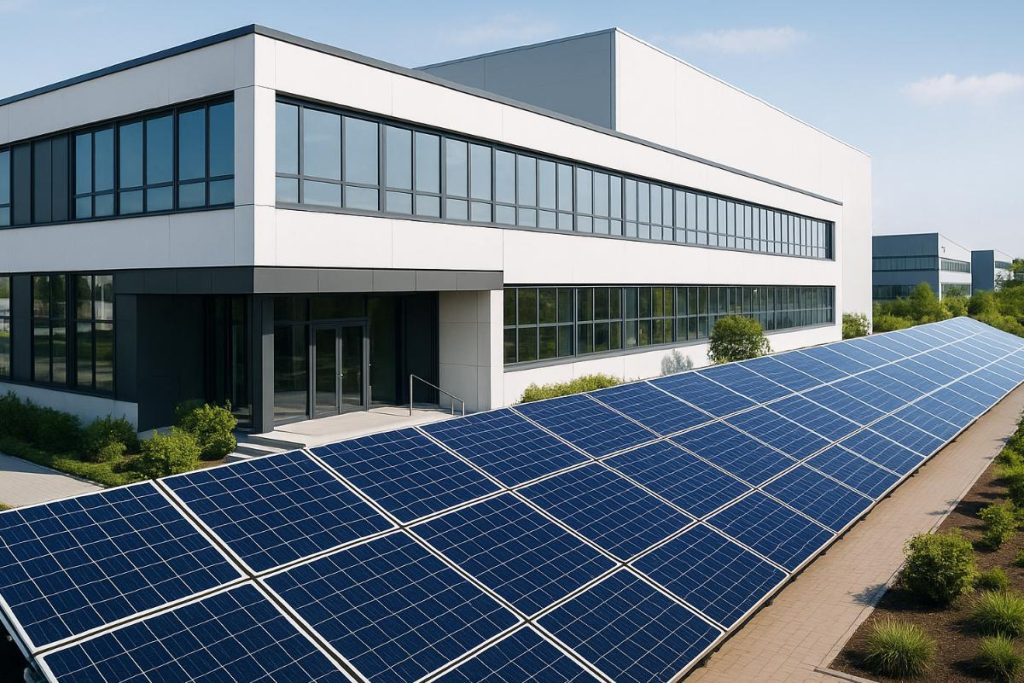Imagine being left in the dark when the power in your house simply disappears, it's not a comfortable or safe situation. Having a home power generator can be your safe haven in these moments, ensuring that the lights, fridge, air conditioning and even that cup of coffee don't have to stop.
But choosing the right generator isn't as simple as grabbing the first one you find; it involves getting to know the options available, their real capacities and also thinking about alternatives that are revolutionizing the market, such as solar systems with storage.
If you want to make a smart decision that brings safety, savings and respect for the environment, this article is your guide to understanding all this in a practical and accessible way.
What a home generator is and how it works
One residential power generator is a piece of equipment that supplies electricity autonomously, especially in emergency situations such as power outages on the public grid. It converts mechanical energy into electrical energy, usually using combustion engines that power an alternator. Understanding the basic operation of generators is important for knowing when and how to use them, as well as evaluating their advantages and limitations.
Energy generation in emergency situations
The residential generators play a fundamental role in ensuring that the household routine is not interrupted during unexpected power outages. In emergency situations, this equipment comes into play to supply electricity to essential appliances such as lighting systems, fridges, water pumps and medical equipment that require uninterrupted operation.
This capacity prevents everything from minor inconveniences, such as the loss of food, to more serious problems, such as appliance failures that could put your family's health and safety at risk.
As well as guaranteeing comfort, the rapid activation of the generator ensures the continuity of daily activities, especially in homes with specific needs, such as residents who rely on electronic medical equipment or home offices that require a stable connection.
That's why choosing a home electric generator reliable and correctly sized for the home is essential for dealing with emergencies calmly, offering security and peace of mind for the whole family.
Types of generators available on the market
The market offers several options for homes, each with specific characteristics:
- gasoline generators: portable and suitable for temporary use, they have less autonomy and limited power;
- diesel generators: more powerful and robust, suitable for prolonged use and larger loads;
- gas generators (LPG or natural): cleaner combustion, lower pollutant emissions, good option for residential and commercial use;
- inverter generators: modern equipment that produces energy with superior quality, ideal for sensitive electronics;
- solar generators with storage: sustainable systems that use photovoltaic energy and batteries to provide continuous electricity.
Remember that each type has advantages and disadvantages that must be evaluated according to the user's needs.
Which power generator is best for a home?
Choose the home electric generator The right solution requires analyzing a series of factors, ranging from the size of the home to the equipment that needs to be powered. A detailed assessment helps to avoid inappropriate purchases that can result in energy shortages or waste.
Factors for choosing: size of house, essential equipment, continuous or occasional use
The size of the home and the number of residents directly influence consumption and the power required. It is essential to list the essential equipment, such as the fridge, air conditioning, lighting and electronic devices, in order to size the generator that will supply this demand.
In addition, assess whether the generator will only be used in one-off emergencies or whether it will need to withstand prolonged periods of use, as this influences the choice of fuel type and autonomy of the equipment.
Differences between portable and stationary generators
Portable generators are compact, easy to transport and generally used for short emergencies. Fixed generators, on the other hand, are permanently installed, offer greater power and autonomy, and can be configured to switch on automatically in the event of a power failure, guaranteeing comfort without manual intervention.
Evaluation of noise, efficiency and autonomy
The noise level is an important aspect for residential use, especially in urban areas. Look for equipment with soundproofing systems. Fuel efficiency also impacts the operating cost and autonomy of the generator, which must be sufficient to cover the expected period of use without frequent refueling.
How powerful is a generator to run a house?
Calculate the ideal power of a residential power generatorThe power supply, measured in kVA (kilovolt-ampere), is a fundamental step in ensuring that all the essential appliances in your home work properly during a power outage. To do this, you need to add up the electrical power of the devices that will be used simultaneously, such as the fridge, air conditioning, lighting and security systems.
In addition, it is important to take into account start-up peaks, the momentary increase in consumption that occurs when appliances with electric motors, such as pumps and air conditioners, turn on. It is therefore advisable to add a safety margin to the calculation to avoid overloads that could damage both the generator and the connected equipment.
Precise sizing not only guarantees safe system operation, but also greater energy efficiency in the use of the generator, avoiding unnecessary expenses with oversized equipment or problems caused by a lack of power.
How many kVA does a house consume?
Have you ever stopped to think about how much energy a home really needs to function without interruption? It's not just a question of looking at the numbers on the electricity bill, but of understanding your home's electrical "appetite", especially when several appliances are on at the same time.
Knowing exactly how many kVA your home consumes is the key to choosing the generator or solar system that will keep everything running smoothly.
What is kVA and what is the difference between kVA and kW?
The kVA is the unit that represents the apparent power, which includes the active power (kW) used to do actual work, and the reactive power, which circulates in the system but does no work. For most homes, active power is the reference for consumption, but the sizing of generators must consider kVA to include all electrical aspects.
Average monthly consumption in Brazilian homes
The average home in Brazil consumes between 150 and 300 kWh per month, depending on the number of residents, equipment and consumption habits. Peak power can vary greatly, so it's important to understand both monthly consumption and the power needed to meet instantaneous demand.
Advantages and disadvantages of traditional generators
When the power goes out, the traditional generator appears like a true emergency hero, ready to save the day. But is this solution only good for you? Like everything else in life, combustion generators have their good sides and their challenges.
Understanding these advantages and limitations is fundamental to making a conscious choice that balances comfort, cost and sustainability in the day-to-day running of your home.
Fuel and maintenance costs
Traditional generators rely on a constant supply of fossil fuels, whose prices are volatile and can significantly increase operating costs. In addition, the need for periodic maintenance to ensure efficient operation generates ongoing expenses, which must be factored into the user's financial planning.
Environmental risks and technical limitations
The operation of combustion generators emits polluting gases and generates loud noises, causing a negative impact on the environment and discomfort in homes. Technically, prolonged use accelerates the wear and tear of components, reducing the useful life of the equipment and increasing the frequency of repairs.
Noise and physical space for installation
The high level of noise produced by generators requires acoustic insulation or strategic location to minimize nuisance. In addition, stationary generators need adequate space, good ventilation and easy access for maintenance, factors that directly influence the choice and installation of equipment.
Efficient alternative: solar system with energy storage
Faced with the challenges and limitations of traditional generators, residential solar systems with energy storage are emerging as a modern, efficient and sustainable solution.
This alternative is increasingly gaining ground in the market, driven by the search for energy autonomy, cost reduction and environmental commitment. Integrating photovoltaic panels with battery systems makes it possible not only to generate clean energy, but also to store it for use at times when the sun is not available, transforming the way we consume electricity.
How solar energy works with batteries (large-scale storage)
Photovoltaic systems capture sunlight and convert it into electrical energy using solar panels. This energy can be consumed instantly or directed to high-capacity batteries, where it is stored for later use, including at night or on cloudy days.
This large-scale storage technology offers households the possibility of significantly reducing their dependence on the conventional electricity grid, guaranteeing a continuous and reliable supply.
The autonomy provided by the batteries allows the system to operate intelligently, optimizing consumption and enabling efficient use of the energy produced, with direct economic and environmental benefits for the user.
Long-term economy and sustainability
Although the initial investment in solar systems with storage is higher than buying a traditional generator, the savings generated over time are significant. The elimination of recurring fossil fuel costs, lower electricity bills and low maintenance make these systems highly advantageous financially.
In addition, solar energy with storage does not emit pollutants, helping to reduce the carbon footprint and promoting a cleaner and more sustainable energy matrix, in line with current and future environmental requirements.
Why BYD Energy is a benchmark in Brazil
BYD stands out as the country's leading manufacturer of photovoltaic modules, produced at its factory in Campinas, which has an advanced Research and Development center. This structure allows for the constant development of innovative and efficient solutions, adapted to the specific needs of the Brazilian market.
In addition to cutting-edge technology, BYD offers a structured after-sales service, with qualified technical support and training programs for customers and partners. The company's commitment to sustainability is demonstrated not only by its products, but also by its responsible corporate practices, consolidating its reputation as a benchmark in the automotive sector. renewable energy in Brazil.
When is it worth investing in a generator and when should you opt for solar energy?
Deciding whether to invest in a traditional generator or a solar system with storage involves carefully analyzing various aspects ranging from the consumption profile and frequency of power interruptions to financial and environmental issues.
Traditional generators are suitable for situations in which the power supply is unstable, but outages are sporadic and short-lived. They are efficient solutions for those who need immediate emergency power, with a relatively low initial cost and quick installation. However, their continuous use can generate high fuel costs, greater environmental impact due to emissions and frequent maintenance.
On the other hand, solar systems with storage are ideal for users looking for energy autonomy, a significant reduction in energy costs over time and a commitment to sustainability. Although the initial investment is higher, this alternative offers lasting savings, less environmental impact and increased property value. It is especially recommended for homes and establishments that face frequent power outages or wish to reduce their dependence on the electricity grid.
Therefore, the choice between generator and solar energy must take into account not only immediate needs, but also long-term objectives, financial balance and environmental impact, ensuring a solution that provides a complete and efficient service.
Talk to BYD Energy and find out about our complete solutions
If you are looking for more security, autonomy and savings for your home, BYD Energy do Brasil is the ideal partner to transform your energy consumption. With integrated solutions that combine high-efficiency solar generation and advanced energy storage systems, BYD offers cutting-edge technology combined with specialized service, designed to meet the specific needs of your home.
Our systems are designed to ensure greater independence from the electricity grid, reduce energy costs and minimize environmental impact. In addition, we offer complete support from initial consultancy to installation, maintenance and technical training, ensuring that you have peace of mind and get the most out of your clean energy.
Want more savings and energy security for your home? Contact BYD Energy and discover the ideal solution with our experts.

